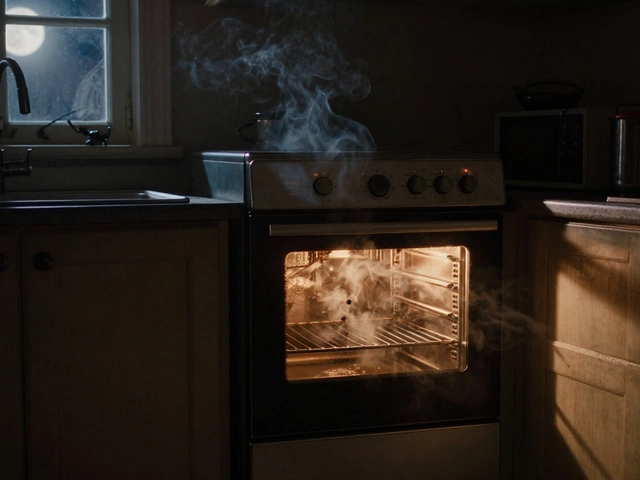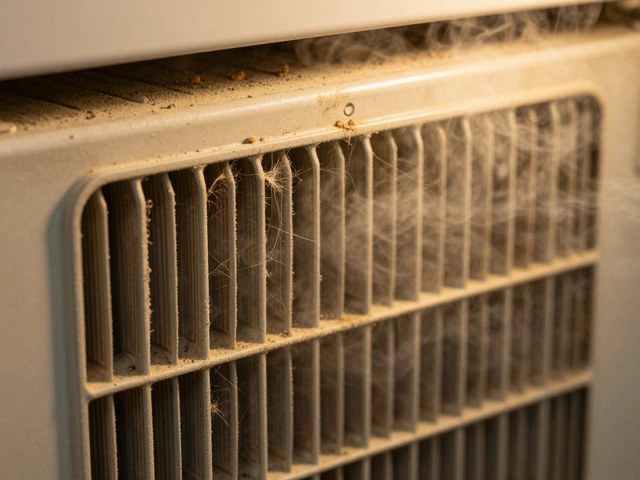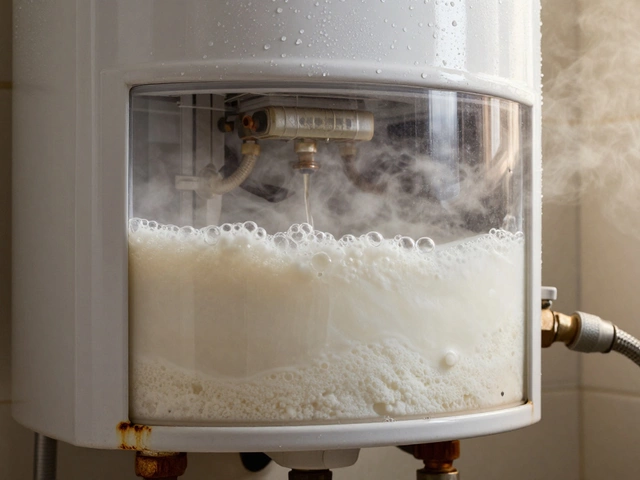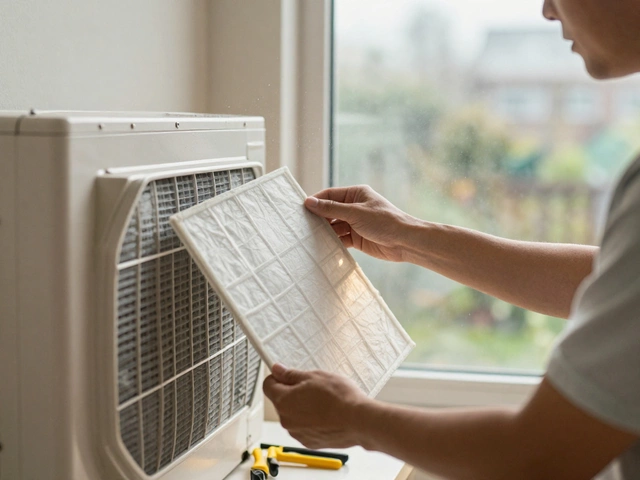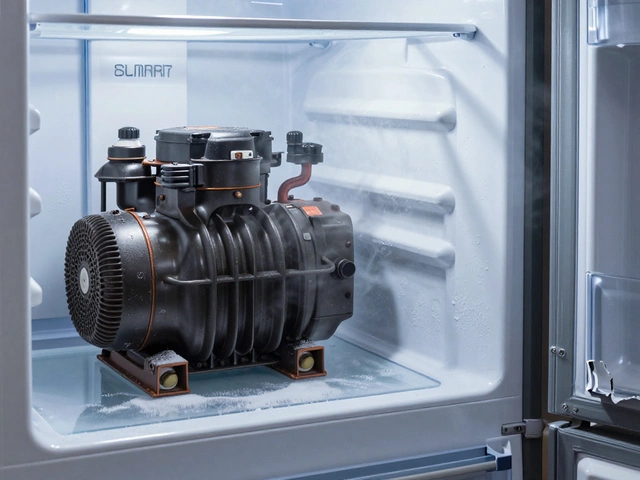Facing the prospect of replacing your boiler can be a bit intimidating. It involves a mix of technical choices and logistical considerations that, if unfamiliar, could leave anyone's head spinning. But fear not! Turning this challenge into a successful and less stressful experience is possible with the right knowledge and preparation.
This article seeks to demystify the process of boiler replacement. We'll delve into when and why you might need a new boiler, what the whole replacement journey entails, and provide tips on managing it effectively. With thoughtful planning and the right approach, you can ensure your home stays cozy and warm with minimal upheaval.
- Signs You Need a New Boiler
- Understanding the Replacement Process
- Costs and Considerations
- Tips for a Smooth Transition
Signs You Need a New Boiler
When it comes to keeping your home toasty during those frigid winters, having a reliable heating system is truly indispensable. Many homeowners find themselves caught off guard when their boiler loses its mojo, leaving them in the cold, quite literally. So how can you tell before it’s too late whether your current boiler is still playing on your team or if it’s time to start considering a replacement? The signs can sometimes be subtle, but being aware of them can save you a pile of trouble later on down the road.
One of the earliest signs suggesting it might be time to look for a new boiler is when the current unit is over 15 years old. Boilers tend to have a lifespan of around 10 to 15 years, and as they approach this age, they become less efficient and more prone to issues. Older models typically don’t have the same energy-efficiency standards as newer models, so even if it’s still kicking, it might be working harder and costing you more every month. One might think of it like an old car that still runs but guzzles up more fuel than ever before. The shift towards energy efficiency with modern boilers gives you more bang for your buck, all while being eco-friendly.
If you hear strange, unsettling noises coming from your boiler, such as banging or gurgling, it might be trying to tell you something. These sounds could point to problems like air in the system, low water pressure, or even malfunctioning parts. A healthy boiler should hum gently, not sound like it’s throwing an ongoing temper tantrum. Engaging a professional to help diagnose these noises can save you money in the long run by addressing minor issues before they spiral into costly repairs or replacements.
Similarly, if you notice that your radiators aren't heating up as they used to, it could indicate a problem. Sometimes, this issue might be caused by sludge build-up in the system, which can obstruct water flow. Regular maintenance can help tackle these issues, but, in some cases, it could mean your boiler's heart just isn't in it anymore, leading to the inevitable decision to replace it. A prominent heating expert from the UK once said,
"You can gauge the health of your boiler by the warmth in your home. If the chill lingers, it's time to check its pulse."
Your energy bills can be another revealing sign. If you’ve noticed an unexplained spike in energy costs, it might be due to an inefficient heating system that's eating up more energy than required. Newer boilers can significantly reduce energy consumption, thanks to more advanced technology and better design. And if you’ve been calling your boiler repair technician more often than your family lately, that’s a glaring red flag. Frequent breakdowns indicate that your unit might be reaching the end of its lifespan, and you might find it more economical to just invest in a new one instead of patching up an old flame.
Additionally, many modern boilers come equipped with features that can enhance home comfort, like improved temperature control and smart internet connectivity that lets you manage heating remotely. These upgrades can make a remarkable difference in your home environment while being easy on the wallet and the planet, shedding light on the true value of replacing that old boiler.
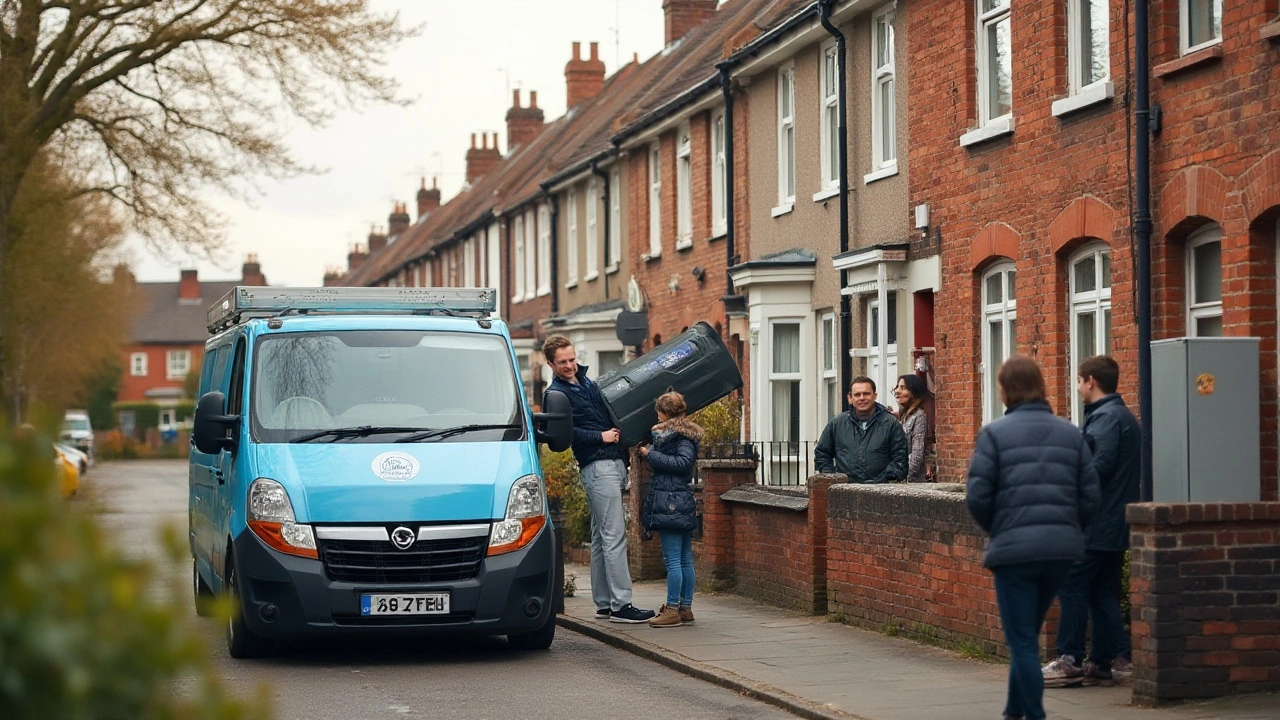
Understanding the Replacement Process
Embarking on the path to replace your boiler might initially seem like setting sail without a map, but break it down correctly, and it becomes more like following a well-trodden trail. The first stage in the boiler replacement process is assessment. A professional assessment can determine the efficiency of your current system and help ascertain whether a replacement is truly necessary. This step might involve inspecting the boiler's age, checking for malfunctions that have become frequent, and gauging inefficiency in terms of rising energy bills. According to Energy.gov, boilers older than 15 years are prime candidates for replacement due to newer models' improved energy efficiency. The importance of this initial stage can't be overstated; it sets the foundation for what comes next.
Following on from the assessment comes the decision-making process concerning the type of new boiler. The market offers numerous choices, from traditional models to newer, high-efficiency condensing units. Knowing the difference can greatly impact future home comfort and energy savings. Weighing these choices involves considering your home's particular requirements, like size and layout, as well as the specific fuel type—gas, oil, or electric, each with its own pros and cons. It's worth noting that the UK Energy Savings Trust reports that a modern A-rated boiler, when efficiently used, could save a typical household hundreds off their yearly heating bills. Keeping these potential savings in mind is crucial.
The installation phase is the action-packed part of the journey. Hiring certified professionals is a must—they have the knowledge to deal with specific installations and adjustments, ensuring home safety and optimal system performance. A typical installation varies in time frame depending on the complexity of your new system and the existing setup. Some installations can be completed within a single day, while others might stretch over several. It's generally advised to schedule this process during milder weather to ensure replacement doesn't conflict with your heating needs. During this phase, technicians ensure all connections and safety features are spot-on, which brings peace of mind for you as a homeowner. A fine detail often overlooked is handling and upgrading the thermostat, allowing more precise control over your heating system.
Post-installation isn't just about kicking back and enjoying the warmth. Final checks are crucial. This stage involves system tests and any necessary tune-ups ensuring everything functions as it should—this is your chance to verify the setup and operation of the new heating system. Having a proper maintenance schedule post-installation is highlighted by experts as a means to extend the lifespan of the new unit, keeping it running smoothly and efficiently. This includes regular inspections, timely part replacements when wear is detected, and addressing any minute operational niggles before they snowball into larger troubles. Enjoy the fruits of your labor—reliable, efficient heat that keeps your toes toasty during those chilly Canadian winters and represents a savvy investment in your property's future.

Costs and Considerations
When contemplating boiler replacement, one of the first questions that come to mind is undoubtedly about the costs involved. The price for replacing a boiler can vary widely depending on several factors, including the type of boiler you choose, the complexity of the installation, and even the region you live in. On average, you might expect to spend anywhere from $3,000 to $7,000, yet this estimate can rise depending on the specific needs of your home. It's worth noting that opting for a more energy-efficient model may carry a higher upfront cost but could save you money on energy bills in the long run.
The type of boiler you choose significantly impacts the final cost. For instance, combi boilers, popular for their efficiency and compact size, tend to be less expensive than traditional systems. However, they may not be suitable for larger homes with higher hot water demands. Installation complexity also plays a crucial role. If your existing setup requires extensive modifications, such as piping or vent alterations, labor costs can increase. Given these variables, it is wise to consult multiple quotes from reputable installers to ensure you're receiving a fair price.
Beyond the initial outlay, consider ongoing maintenance and potential running costs. Cheaper boilers sometimes translate into higher energy bills and more frequent repairs, which undermine long-term savings. According to a report from the Energy Saving Trust, even small improvements in energy efficiency can significantly reduce a home's carbon footprint, leading to savings of up to $350 annually on heating bills. This potential for savings underscores the importance of selecting the right boiler from the start.
It's also wise to look at additional considerations that might not be immediately apparent, such as warranties and servicing requirements. Many manufacturers offer extended warranties, which can provide peace of mind in case something goes wrong post-installation. Regular servicing, usually recommended annually, is essential to maintain efficiency and safety standards. Make sure to factor in these potential additional costs when evaluating your budget for a new boiler. As the old adage goes, "a stitch in time saves nine," so investing wisely at the outset can save headaches and money in the future.
Here is a simple table to provide a quick reference for potential costing variables:
| Factor | Potential Cost |
|---|---|
| New Boiler Unit | $1,500 - $5,000 |
| Installation Costs | $500 - $2,500 |
| Additional Repairs/Adjustments | Varies |
| Annual Maintenance | $100 - $300 |
Before making any decisions, it's crucial to do your research and evaluate what's best for your specific situation. Balancing cost, efficiency, and longevity is key to finding a heating solution that keeps you warm without breaking the bank. Consider speaking with a trusted HVAC professional who can provide personalized advice based on your home and energy needs. An informed approach will ensure you feel confident about your investment in a new heating system.
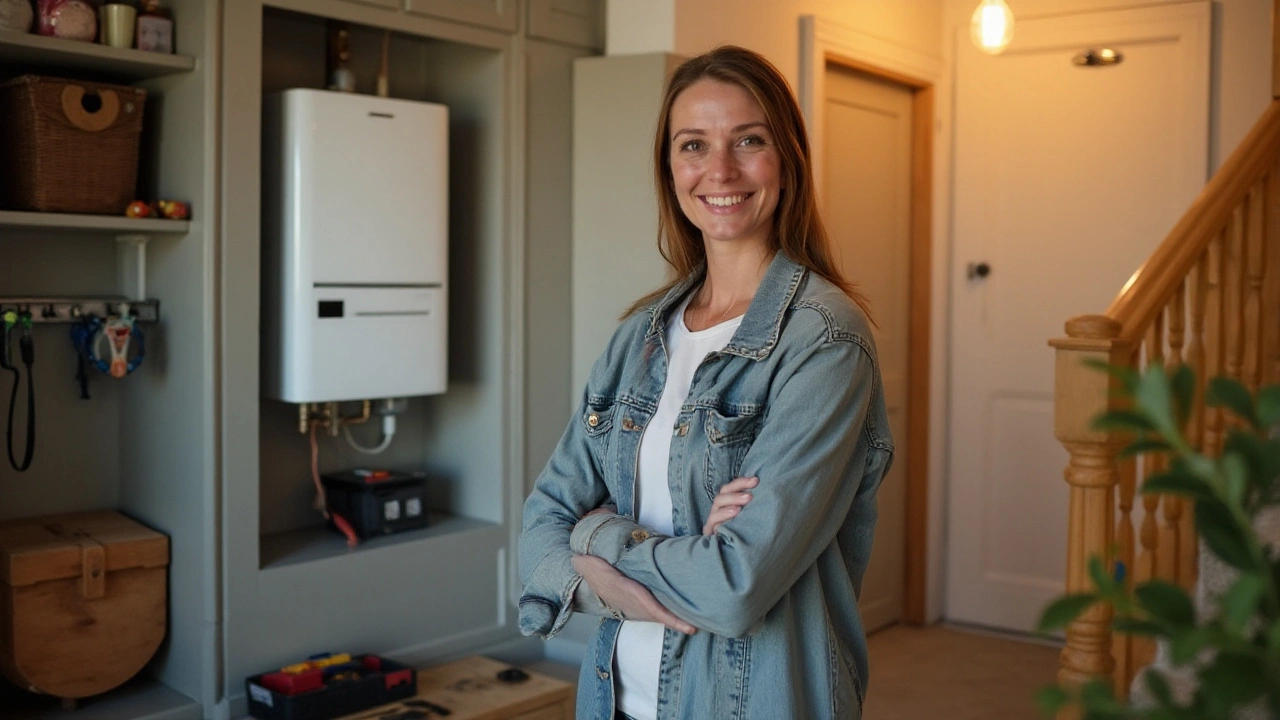
Tips for a Smooth Transition
Planning is pivotal when it comes to replacing your boiler with minimal disruption. It starts with the careful selection of your new unit. Consider energy efficiency ratings, which can significantly impact your future utility bills and environmental footprint. Boilers with ENERGY STAR ratings are a great option, ensuring high performance and cost savings in the long run. Consult with a trusted HVAC professional to evaluate the specifics of your home's heating requirements. This way, you can align your choice of boiler to your budget and environmental preferences.
Once you've selected your boiler replacement, the next big step is scheduling the installation. Ideally, plan this around seasons with moderate temperatures to avoid a disruptive cold snap without heating. Communicating with your chosen installation team about the layout of your home, access points, and the condition of existing plumbing will also aid efficiency. Keep in mind that the actual swap of an old to a new unit can take most of the day, so planning for your home’s usage during this period is crucial.
Proactive communication doesn’t end with scheduling. During the installation day, ensure pathways are clear and easily accessible for technicians. Removing obstacles, such as furniture or other items, allows the team to work swiftly and safely. Setting aside a spot for tools and equipment can also facilitate a smoother workflow. This collaboration aids not only in completing the task efficiently but also in maintaining the integrity of your living space while work is ongoing.
Adapting to a new heating system might take some time, both in terms of operation and understanding its benefits. Familiarize yourself with the system’s manual, and don't hesitate to reach out to your installer for a quick walkthrough. In many cases, manufacturers provide online resources or customer support. Utilizing these can assist in troubleshooting or optimizing the settings for best performance. If you're upgrading from a very old system, the leap in technology might also add functionalities you weren’t used to, such as programmable thermostats or mobile app controls.
Finally, it’s always a good idea to schedule a follow-up maintenance check a few months post-installation. This can confirm the system’s functionality and address any teething issues early on. Regular maintenance checks should ideally happen annually, especially before peak winter months. Staying on top of warranty terms and conditions also guarantees that your heating system remains covered under various parts and services protection. A little attention to these details can ensure long-term savings and peace of mind, sustaining your home comfort for years to come.

